Underrated Canadian Small-Cap Stocks Worth Watching
Key takeaways
Small-cap stocks offer high-growth potential but come with volatility. Unlike large-cap stocks, small-cap companies are often in their expansion phase, meaning they can deliver outsized returns—but they’re also more susceptible to market swings and economic downturns.
Diversification across industries helps manage risk. This list of top Canadian small caps includes companies from finance, construction, healthcare, tech, and industrials, showing that opportunities exist across various sectors. Investors can mitigate risk by spreading their small-cap exposure across multiple industries.
Macroeconomic trends play a big role in small-cap success. Factors like government spending (Bird Construction), commodity prices (Sprott), aging demographics (Savaria), and digital transformation (Docebo) all significantly impact these stocks. Keeping an eye on broader trends can help investors navigate small-cap investing more effectively.
3 stocks I like better than the ones on this list.Serious investors know that **small-cap stocks are a must** in any good portfolio. The chance for high returns makes them impossible to overlook.
Various studies prove the best Canadian small-cap stocks tend to outperform larger Canadian stocks over the long term.
There are several reasons for this, including better growth potential, more attractive valuations, momentum potential when investors fall in love with an individual stock, and lower levels of liquidity.
The top Canadian small cap stocks to be buying right now
A Leader in Precious Metals Investing
Sprott Inc (TSE:SII)
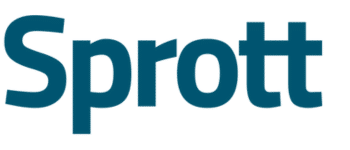
Sprott is a global asset management firm specializing in precious metals and real assets. The company offers a range of investment products, including ETFs, private equity, and managed funds, catering to both retail and institutional investors. With a strong presence in the gold and uranium markets, Sprott benefits from rising demand for hard assets as a hedge against inflation and economic uncertainty.
P/E: 23.3
5 Yr Revenue Growth: 17.9%
5 Yr Earnings Growth: 36.7%
5 Yr Dividend Growth: 3.1%
Yield: 2.5%
A Transformer Manufacturer on the Rise
Hammond Power Solutions (TSE:HPS.A)
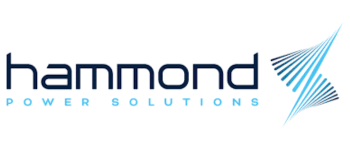
Hammond Power Solutions is a North American leader in the design and manufacturing of electrical transformers. The company serves industries such as renewable energy, data centers, and industrial automation, all of which are seeing rising demand for power infrastructure.
P/E: 13.2
5 Yr Revenue Growth: 17.1%
5 Yr Earnings Growth: 43.4%
5 Yr Dividend Growth: 28.3%
Yield: 1.4%
A Logistics Leader for the Healthcare Industry
Andlauer Healthcare (TSE:AND)
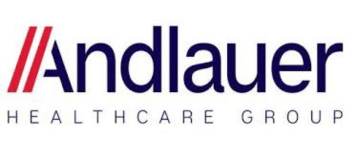
Andlauer Healthcare is a specialized supply chain and logistics company focused on the healthcare sector. It provides transportation, warehousing, and distribution services for pharmaceuticals and medical supplies, making it a critical player in a highly regulated industry.
P/E: 25.2
5 Yr Revenue Growth: 17.5%
5 Yr Earnings Growth: 14.9%
5 Yr Dividend Growth: -%
Yield: 1.1%
A Fast-Growing Specialty Insurer
Trisura Group (TSE:TSU)
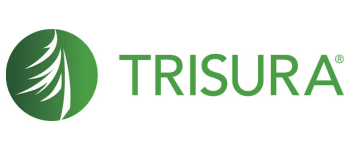
Trisura is a specialty insurance provider with a focus on surety, risk solutions, and reinsurance. The company has rapidly expanded its market share by offering niche insurance products.
P/E: 17.2
5 Yr Revenue Growth: 41.5%
5 Yr Earnings Growth: 70.0%
5 Yr Dividend Growth: -%
Yield: -%
A Leader in Mobility and Accessibility Solutions
Savaria (TSE:SIS)

Savaria is a global leader in accessibility solutions, including stairlifts, wheelchair lifts, and home elevators. The company’s products cater to aging populations and individuals with mobility challenges, making it a defensive investment tied to long-term demographic trends.
P/E: 23.9
5 Yr Revenue Growth: 18.3%
5 Yr Earnings Growth: 5.1%
5 Yr Dividend Growth: 4.0%
Yield: 3.3%
A Key Player in Infrastructure and Industrial Construction
Bird Construction (TSE:BDT)
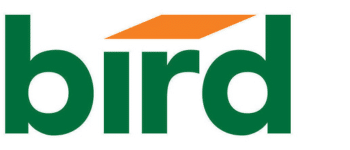
Bird Construction is one of Canada’s largest construction firms, specializing in commercial, institutional, and industrial projects. The company benefits from strong government infrastructure spending and a steady backlog of contracts across multiple sectors.
P/E: 11.6
5 Yr Revenue Growth: 19.8%
5 Yr Earnings Growth: 52.9%
5 Yr Dividend Growth: 8.5%
Yield: 3.1%
An AI-Powered Learning Management System
Docebo (TSE:DCBO)
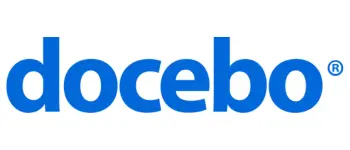
Docebo is a cloud-based software company specializing in corporate e-learning platforms. Its AI-driven learning management system (LMS) allows businesses to create and deliver training programs efficiently. The company has seen strong growth as more companies embrace digital training solutions.
P/E: 34.1
5 Yr Revenue Growth: 39.2%
5 Yr Earnings Growth: -%
5 Yr Dividend Growth: -%
Yield: -%
Related
The Top Canadian Growth ETFs

What exactly is a small-cap stock?
You’ll often hear the term small-cap thrown around loosely. Many investors will refer to stocks as small caps when they aren’t.
The true definition of small-cap companies is ones that have a market capitalization of $300M to $2B. A company with a market cap of less than $300M is technically a micro-cap company. Compare this to large-cap stocks, which can have market caps of over $1 trillion.
Another common misconception is that small-cap stocks must trade on smaller exchanges like the TSX Venture Exchange. In reality, many small-cap Canadian stocks, including every single one we discuss below, trade on Canada’s primary index, the Toronto Stock Exchange.
Plenty of small-cap stocks are trading south on the New York Stock Exchange as well. Suppose you’re new and just learning how to buy stocks. In that case, the secret to crushing the overall stock market using small-cap stocks is identifying companies with significant potential that many other investors haven’t identified.
Since large-caps are followed by more people, it’s unlikely you’ll find that edge in larger companies.
Small-time investors like you and me can quickly build up a significant position in the company and then wait until institutional investors discover the name. That’s when the real magic starts to happen.
However, they do require more patience in a volatile market. Canadians must understand that small caps are not for those who have low-risk tolerances. They can have large swings in price, and Wall Street can be pretty vicious during times of uncertainty.
If you’re still interested, let’s take a closer look at seven of the best Canadian small-cap stocks, the kinds of companies that can put a real jolt into your portfolio.

